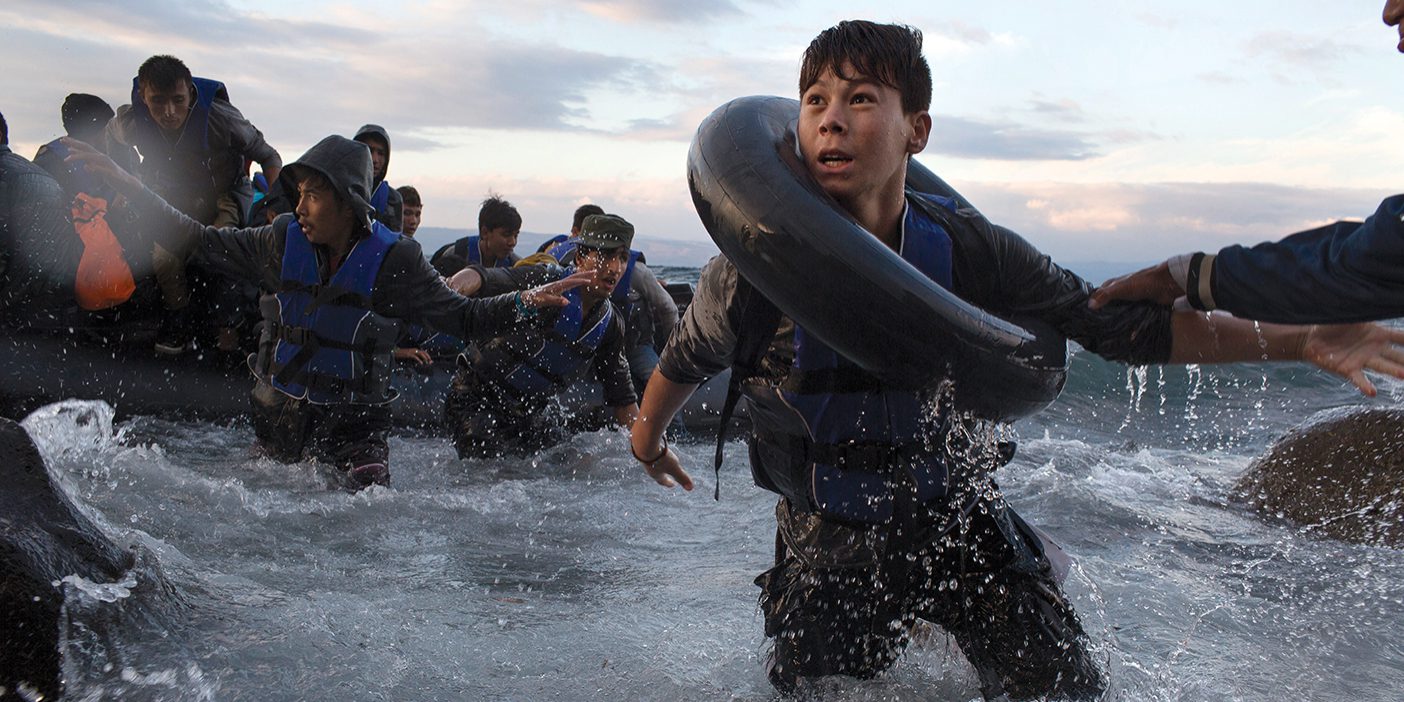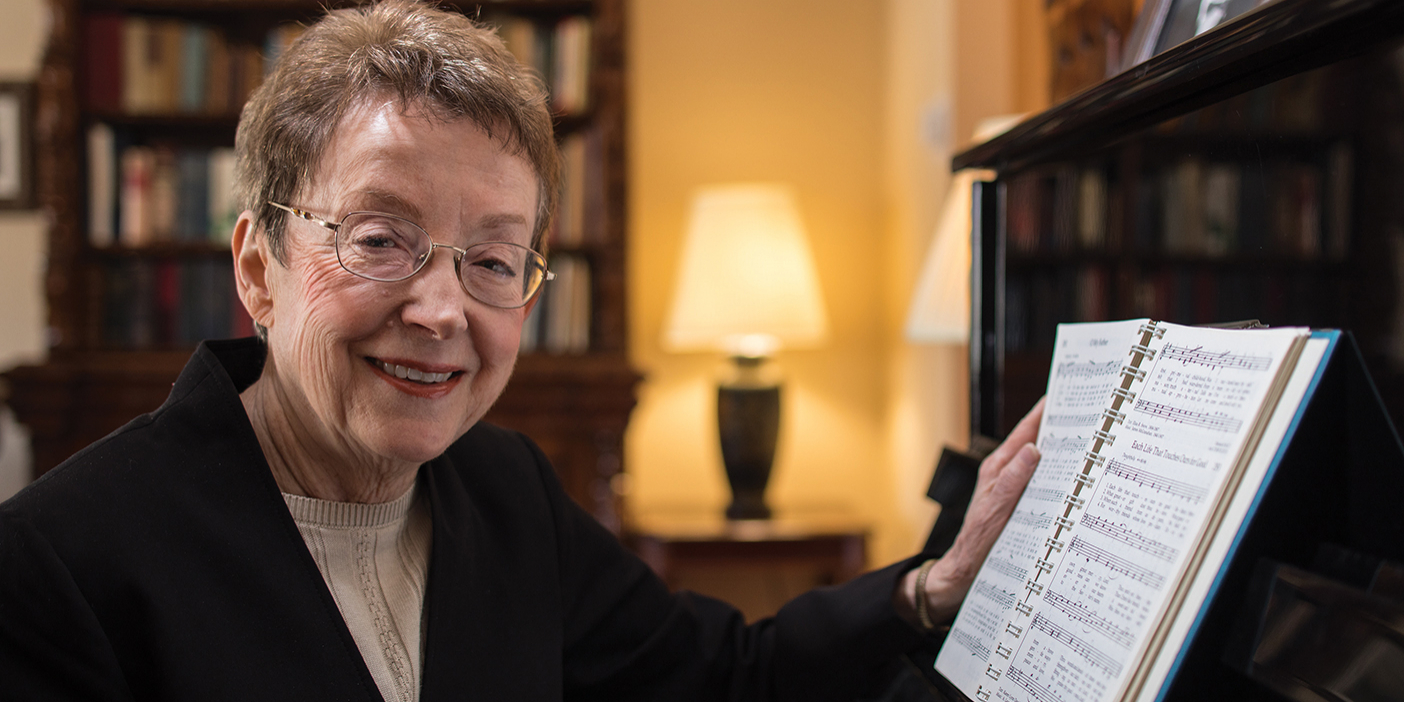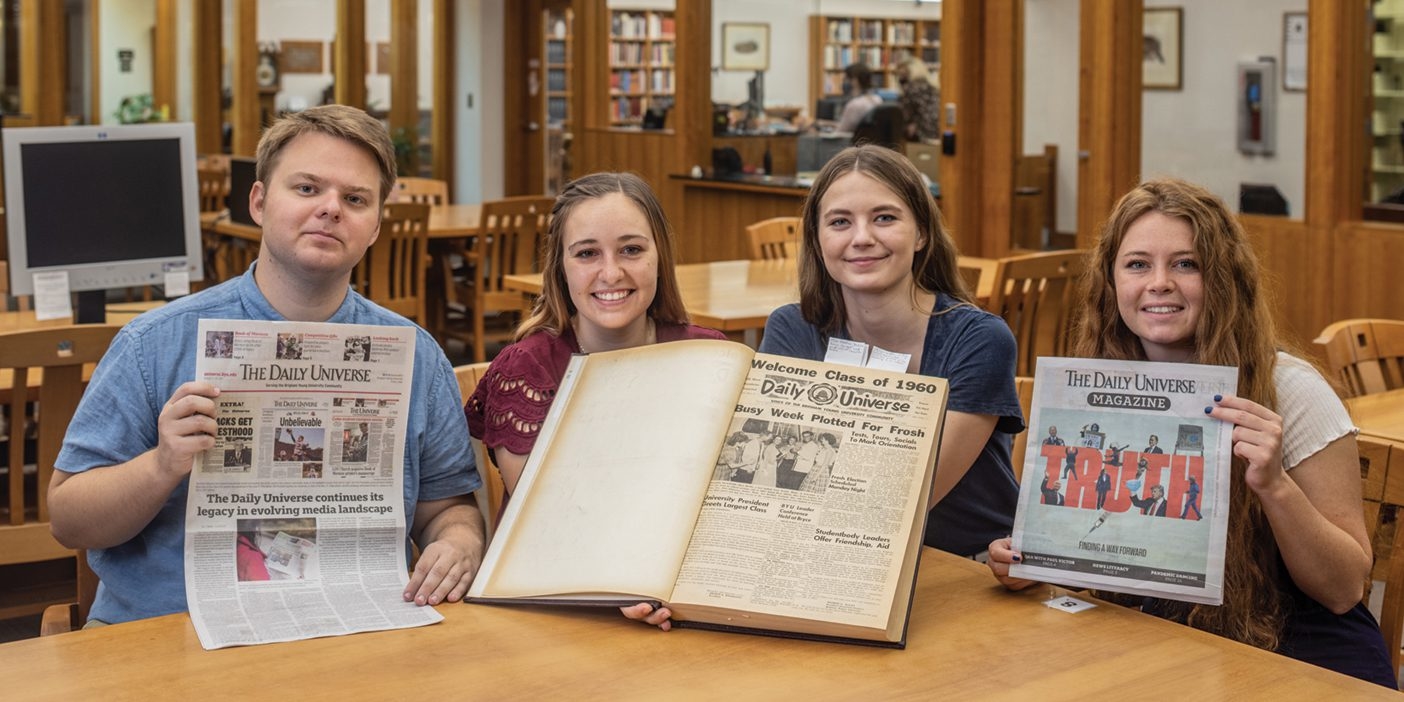Making History
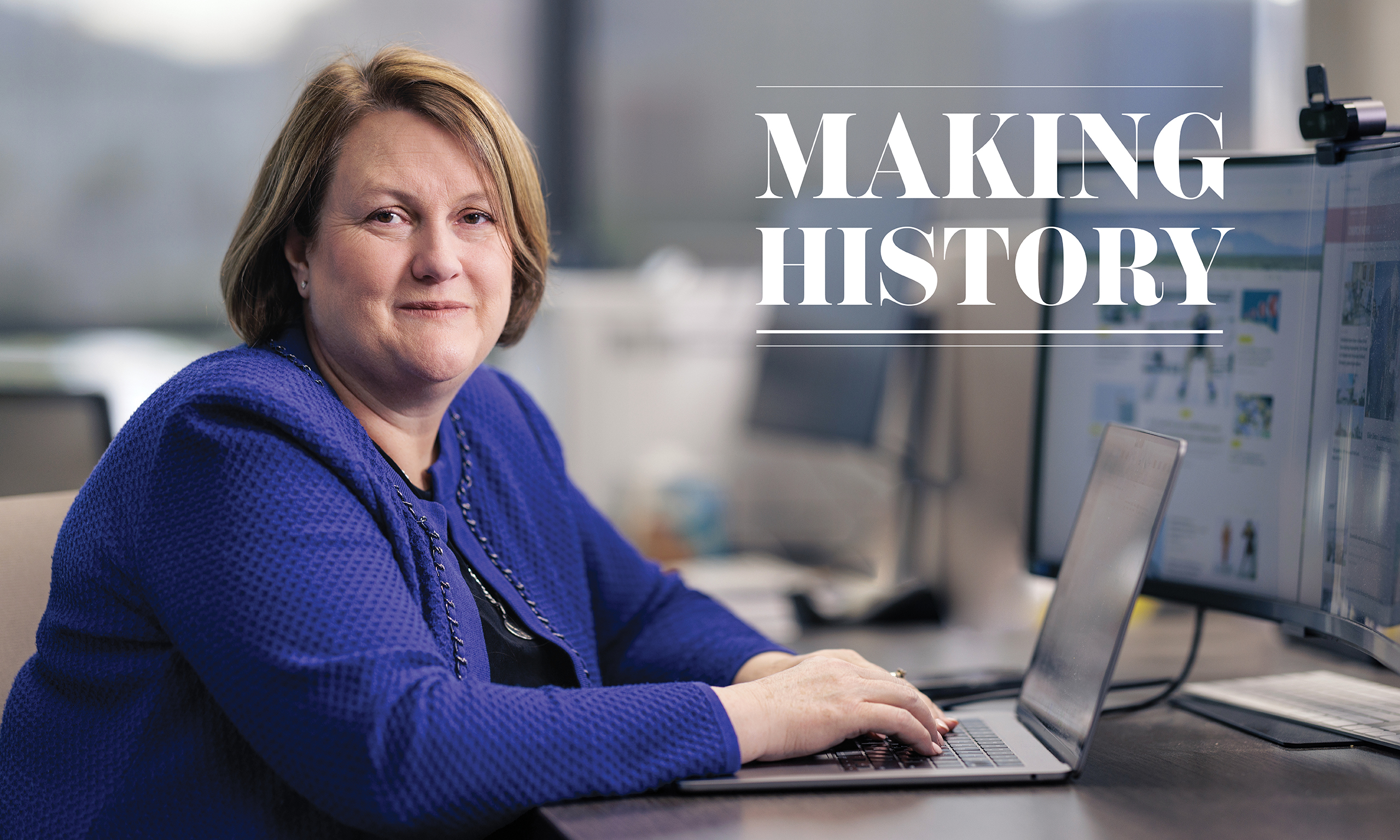
Making History
Over 29 years Sarah Jane Weaver has been eyewitness to the unfolding history of the Church. Now she’s gone from bylines to headlines as the first female editor of the Deseret News.
By Brooklyn Hughes Roemer (BA ’22) in the Fall 2024 issue
On a 2014 reporting trip to Iraq for the Church News, Sarah Jane Cannon Weaver (BA ’94) walked through a refugee camp crowded with thousands of hungry women and children. The camp bakery had broken down, and nobody had eaten that day. “It felt a little superficial to be asking them to tell their stories when their basic needs had not been met,” Weaver recalls. Along her path Weaver happened upon a woman baking naan bread in a tandoor oven she’d brought when fleeing her home. “Can I buy some of your bread?” Weaver asked, thinking she might help the woman monetarily.
The woman responded simply: “I don’t sell my bread, but I do share it.”
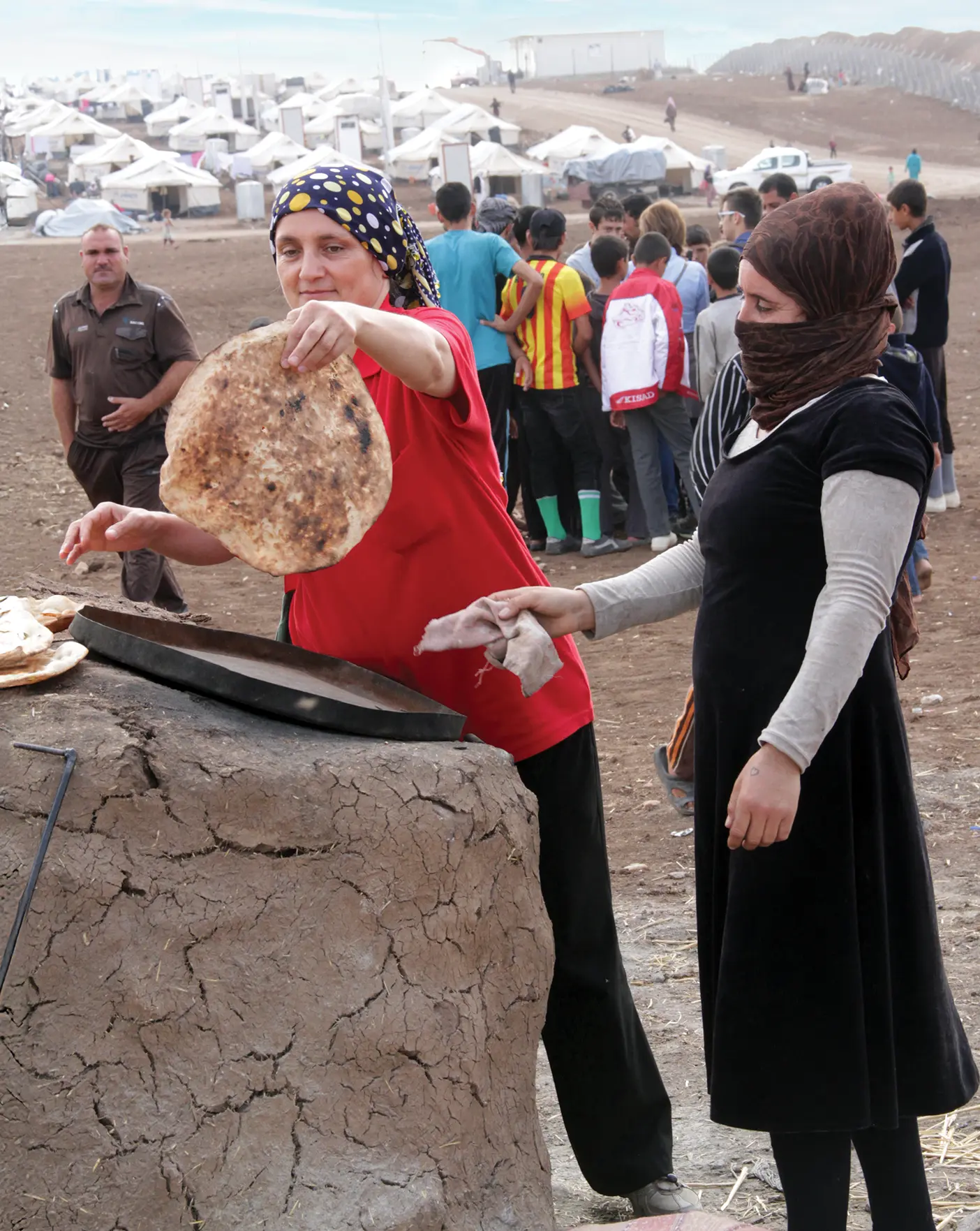
“That’s what makes journalism special,” Weaver says. “Finding that person and telling that story in the midst of war. In the midst of an overcrowded camp where no one had eaten, one woman was willing to share the little bread she had.”
Weaver, who started as a reporter for the Church News in 1995 and was promoted to editor in 2017, has witnessed just about everything. She has seen devastation firsthand: homes destroyed by fire and earthquake, refugees fleeing war and persecution.
She has also observed the best of humanity—generosity, peacemaking, gratitude. And often she’s found these together—the brightest examples of goodness appearing at the center of trauma and tragedy. “When we see human suffering at its very core, . . . we’re also going to see the best in people,” she says.
Newly appointed as the editor of the Deseret News, Weaver has built her career on persistence and grit.
Sheri L. Dew (BA ’77), the executive vice president of Deseret Management Corporation, describes Weaver as “a first-rate journalist.” Dew traveled with Weaver on reporting trips to several countries during Weaver’s time as editor of the Church News. “I can’t tell you how often we would go to a full day of activities, often including travel, only to then have Sarah stay up half the night writing her story about what had happened that day,” says Dew. “The bottom line with Sarah is that she will do what it takes to get the job done.”
Before the summer Olympics in July, Weaver flew to Paris to report on the opening ceremony and Salt Lake City being awarded the 2034 Olympic Games. The day she flew out happened to be the day a major software outage disrupted travel around the world. Over the three days it took Weaver to get to Paris, she kept writing—through layovers, canceled flights, and missed connections. “She still filed two stories” during her expedition to Paris, remarks Deseret News colleague Holly Richardson. “She is committed to doing her job. If that means long hours, she does it. If that means not a lot of sleep, she does it.”
With the promotion Weaver became the first female editor of Utah’s longest-running news organization.
“It’s certainly a milestone, . . . something to be noticed,” remarks Deseret News executive editor Douglas H. Wilks, who has worked with Weaver for more than a decade. “That said, she’s the best qualified for the job. I can think of no one else who could do this job at this particular time better than Sarah Jane Weaver. . . . She’s been prepared for this.”
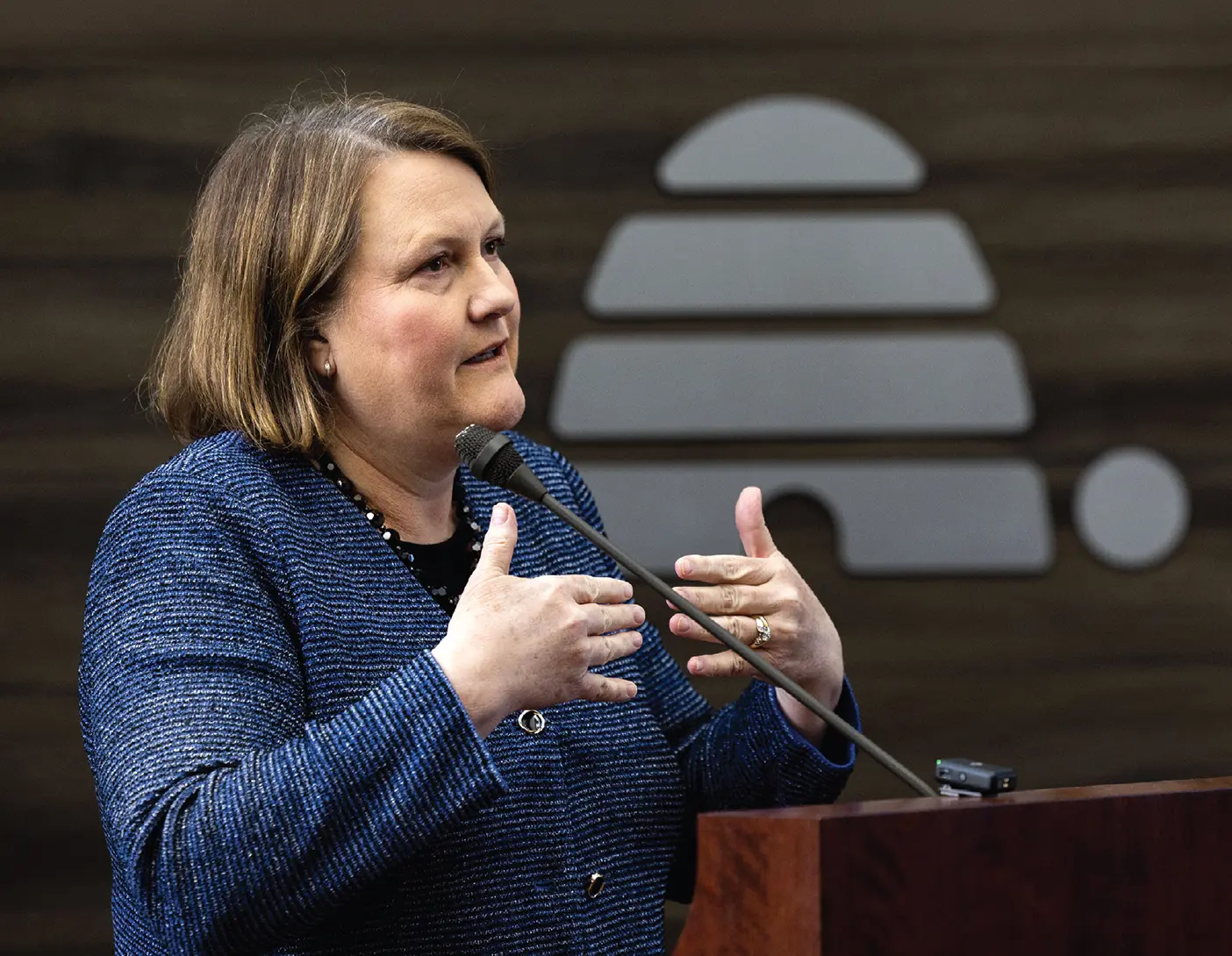
Just the Beginning
Sarah Jane Weaver began reporting stories well before she knew what journalism was. “My mother used to say that she knew I was a reporter because I would come home and . . . tell her everything that was happening at all the neighbors’ houses,” Weaver recalls of her Holladay, Utah, childhood. “She liked it a lot less when she realized one day that I was probably telling all of the neighbors everything that was happening at our house.”
“Even when I was young,” Weaver says, “I realized I was good at asking questions.”
Weaver’s journalism career began in earnest in eighth grade, when she discovered the school newspaper and her love of writing and making connections. “I liked talking to people, I liked meeting people, and I loved hearing about their lives,” she says. “I realized I could make a career out of this.”
Those dreams came crashing down in high school, when Weaver wasn’t chosen to be the editor of the school newspaper. Hiding in her closet to cry, she told herself, “This is the end of my journalism career.”
“My mother used to say that she knew I was a reporter because I would come home and . . . tell her everything that was happening at all the neighbors’ houses.”
—Sarah Jane Weaver
“My parents came to my rescue,” Weaver remembers. They “offered love and empathy and all the things you say to somebody who is 17 and thinks their life just ended.”
She hasn’t forgotten the pep talk. “You know what this is?” they asked her. “This is just the beginning. If you do your best, if you work hard, if you want this, everything that you want is within reach.”
Weaver left high school with a head of steam and a BYU communications scholarship.
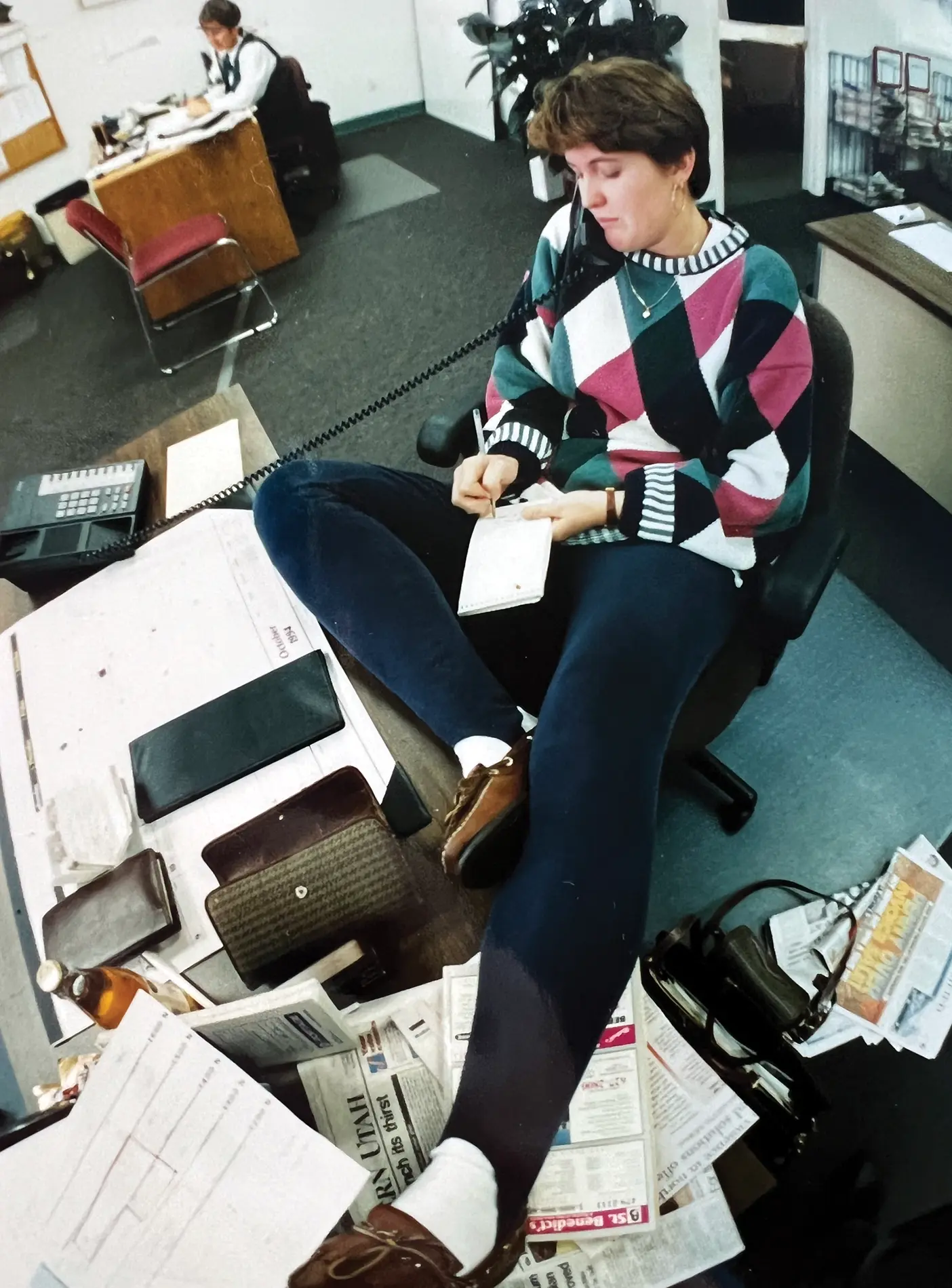
Landing a job at the Daily Universe, Weaver became the editor in 1993. She remembers laboring late at night on the paper, printing mockups and waxing them to full-sized proofs. After the night editor made any final corrections with an X-acto knife, they’d drive the proofs to the printing press. “It was always fun to come back in the morning and hold that physical paper.”
It was in a BYU journalism class that Weaver solidified her testimony of Jesus Christ and His ministry. The final assignment for the class was to write a news report on the story of the Savior’s Resurrection—“an assignment that made the scriptures real for me,” she says.
It was also through BYU that Weaver met her husband, J. Clinton Weaver (BA ’93), who was interning in DC through the Washington Seminar at the same time as Sarah was interning with the Deseret News Washington Bureau.
“We both found our way to BYU, and it literally changed our lives,” says Sarah.
Always Take the Meeting
After Weaver graduated from BYU, completed a fellowship at the Arizona Republic, and worked for eight months at the Standard-Examiner in Ogden, she and Clint were making plans to get married when she received a call from the Deseret News. Was she interested in applying for a job with the Church News?
She wasn’t.
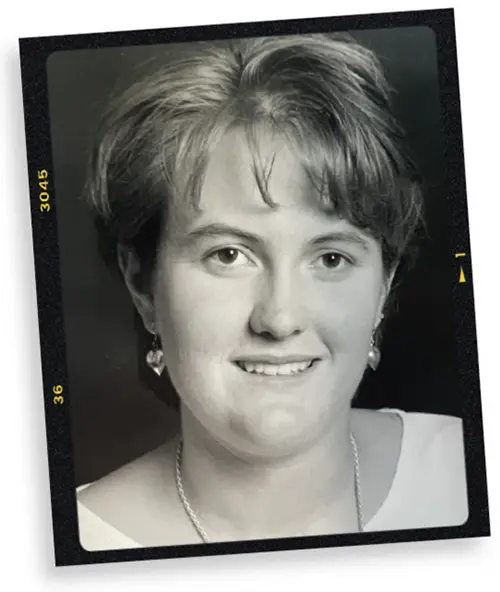
Weaver had a vision for her career, and it didn’t involve covering Church stories. Political reporting had always been the plan. “I wanted to be Woodward and Bernstein”—the investigative reporters who uncovered the Watergate scandal. She figured her next step would be moving back to Washington, DC, “the epicenter of politics.”
“I don’t think she would have thought, ‘Going through Church News will lead me to be the first female editor of the Deseret News,’” says Weaver’s daughter E. Kathryn Weaver (’25). “But the Lord knew that, and He showed her that her path was unique, and it was leading her exactly where she needed to go.”
Even so, she decided to meet with the Church News editor anyway, she says, because “you should always take the meeting.” Despite her reluctance, she found that she couldn’t sleep for three nights after the meeting. She realized that working for the Church News would be a fulfilling career. Suddenly, she worried she hadn’t represented herself well enough in the interview. So she returned to the Church News, this time with letters of recommendation and clippings of her published articles. They hired her on the spot.
Juggling
“Let me tell you what this bowl went through to get here,” Weaver told her family gathered in their living room in 2011. She had just returned from a reporting trip to Japan after a 9.0-magnitude earthquake triggered a tsunami that together devastated the country, killing nearly 20,000 people and leaving hundreds of thousands displaced from their homes.

Sarah had found the simple blue and white ceramic bowl abandoned next to a derailed train in the aftermath of the disaster. Miraculously, despite the trauma it had been through, the bowl remained intact.
“It sits on our piano,” says Sarah’s oldest daughter, M. Elizabeth Weaver (BS ’23). “It’s a symbol to us of resilience in trials and how tsunamis can hit, earthquakes can hit, so many things can hit, but some beautiful things remain intact.” For Weaver and her family, this reminder has helped them navigate unexpected course changes and look for moments of beauty in tragedy.
When Sarah and Clint decided to start a family, they again found their life plans shifting. Sarah had originally planned to pause her career when children came, but it never felt right as each of their three daughters was born. “We moved forward with our lives one day, one week, one year at a time—never really anticipating that we would end up where we did,” she says.
The day before their third daughter was born, Clint was diagnosed with a rare form of lymphoma. Fearing that God wouldn’t answer her prayers the way she hoped, she stopped praying altogether for weeks. In a devotional address given at BYU–Hawaii, Weaver recounted finding the courage to pray again on a cold November morning. Calling upon God out loud in her car, she recalled, “He enveloped me in love. I was filled with the assurance that, regardless of the outcome of my husband’s health, things would be alright.” While groundbreaking treatment led to Clint’s recovery, Sarah had experienced her own miracle that morning.
“We moved forward with our lives one day, one week, one year at a time—never really anticipating that we would end up where we did.”
—Sarah Jane Weaver
When their daughters were little, Sarah worked days and Clint nights as a customer-service agent for Delta Airlines. As the kids got older, Sundays became “mapping days” for the week—who could drive the carpool, who could pick up the kids, who could get to all the activities? More than that, “it became a sort of early version of family councils,” Weaver says, where their daughters could discuss things that were troubling them and get help.
“It created a setting of openness and safety within our home,” recalls Kathryn.
When her job required Sarah to travel, as it often did, Clint would take time off, and they would prepare by charting out the days Sarah would be gone through a grid system made with blue painter’s tape on their dining-room table. “We would put soccer uniforms and birthday gifts and school projects in each square,” she remembers. She’d prepack lunches, make freezer meals, and coordinate with her husband and other parents to get rides for the kids.
Amid everything, Sarah made a lot of cookies. “Her superpower is baking chocolate-chip cookies.” says Elizabeth, who nearly always found a cookie in her lunchbox. “She would always quadruple the recipe and deliver extras to people around the neighborhood.”
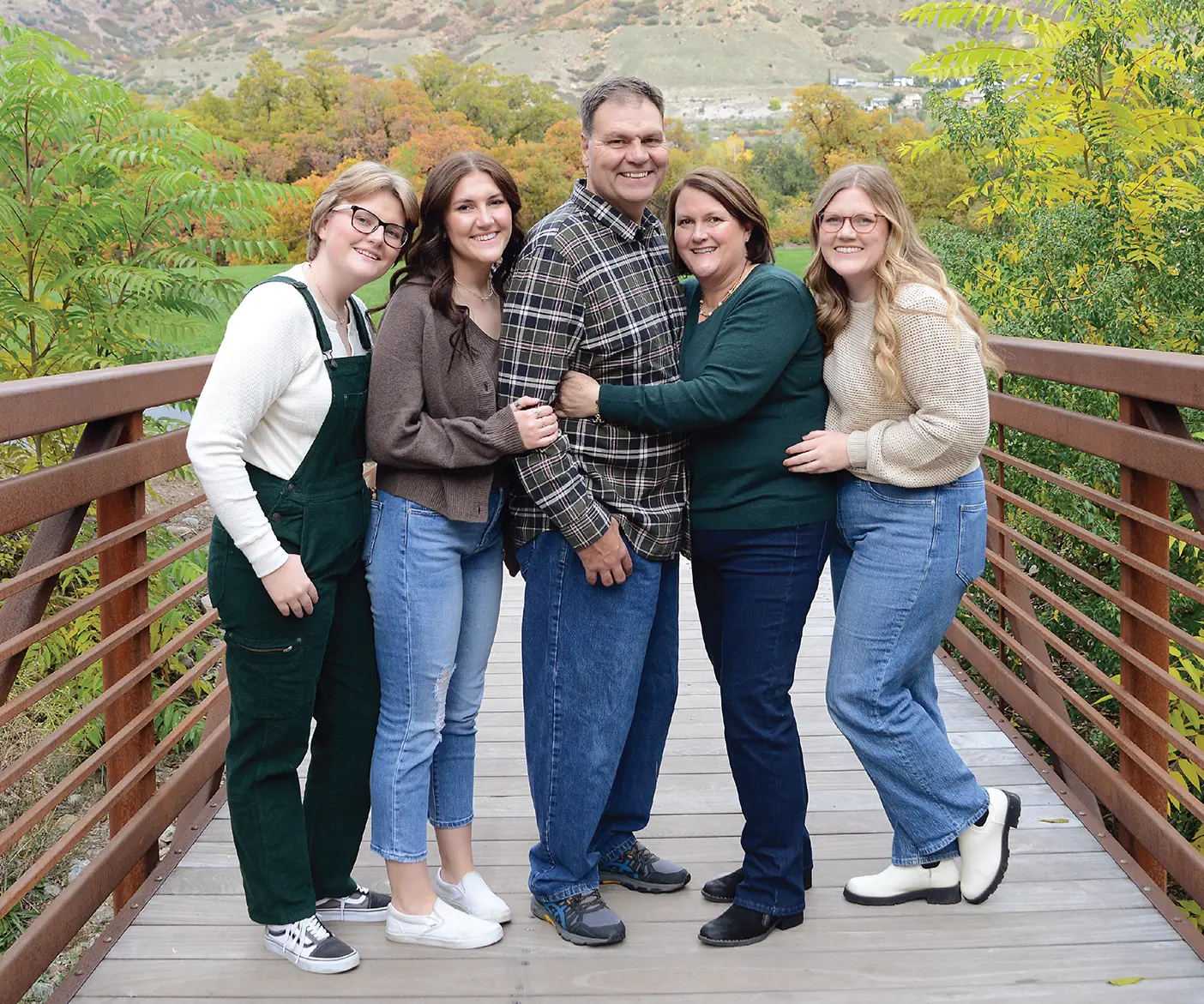
When Weaver was asked to be the ward Relief Society president while she was editor of the Church News, she accepted the call. Sarah and Clint had decided early in their marriage to prioritize serving in The Church of Jesus Christ of Latter-day Saints, committing to never turn down a calling. Busy as she was, Sarah relied on the help of her counselors, other Relief Society members, and the Lord. There is an understanding among their ward members, says Elizabeth: “The Weavers are going to do the best they can, but they can’t do everything, and so we’re going to work with them.”
Sarah adds, “Nobody accomplishes anything in life without the support of a lot of people around them.”
When as a college student it was Elizabeth’s turn to serve as a Relief Society president, she looked to her mother for confidence. “We were actually Relief Society presidents for a couple of months together,” she says. “You’re just supposed to be in your calling long enough to teach me how to do it,” Elizabeth remembers telling her mother.
It’s just one way their mother set an example for the girls. “Having a working mom that kicked butt at her job was a huge benefit for us,” says Elizabeth, “because we never doubted that we could do anything, and we never doubted if something was possible.”
Writing History
On a March 2019 trip to Italy to cover the Rome Italy Temple dedication, Weaver watched as the entire First Presidency and the Quorum of the Twelve Apostles gathered in white suits for a group photo on the temple grounds. “This is history in the making right now, right here,” she remembers thinking. The next day President Russell M. Nelson confirmed those thoughts when he called the temple dedication a “hinge point” in the history of the Church that would mark a time of acceleration in the work of the kingdom.
In moments like these and throughout her career, Weaver has witnessed Church history unfolding around her. She’s traveled to more than 40 countries reporting for the Church News on ministry tours, temple dedications, and service trips, learning countless lessons along the way.
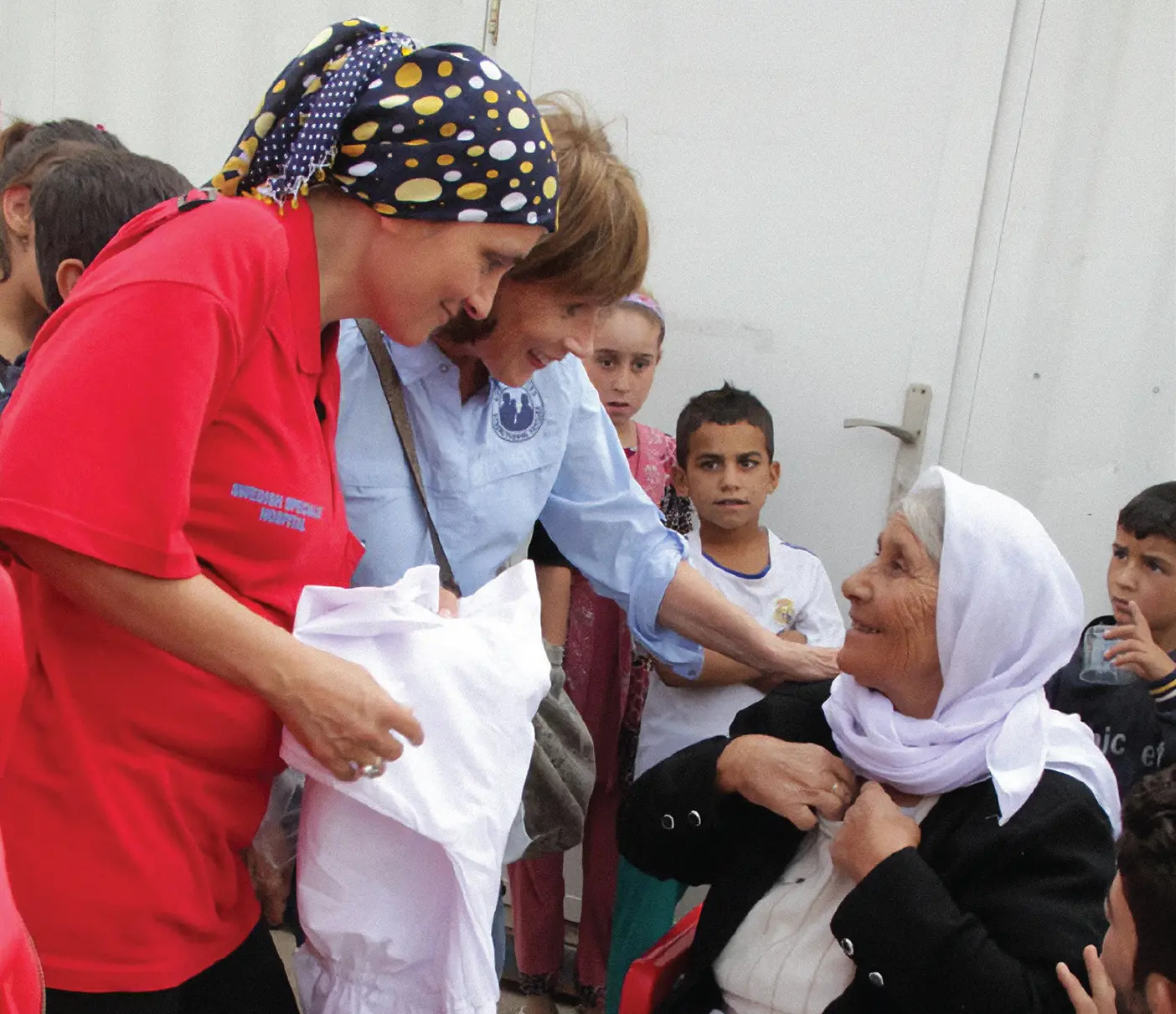
On her 2014 trip to the Iraq refugee camp, Weaver met with Yazidi women who were fleeing religious persecution. Weaver learned these women had been wearing the same white dresses since they’d arrived in the camp, unwilling to take them off because of the clothing’s religious significance. When Latter-day Saint Charities gave the women new white dresses, they wept with gratitude.
“We always look to provide food, shelter, clothing,” Weaver says, “but for these women, their faith was just as important to them as these other things, and they could not be whole until somebody noticed and helped them live their faith.” As Weaver watched these women, she realized, “I am also incomplete without my faith.”
On a 2019 visit to Paradise, California, after fires devastated more than 18,000 structures in the community, Weaver anticipated the arrival of President Nelson, who was scheduled to address local members. But the day President Nelson was supposed to leave, his daughter died of cancer. “We just assumed he would not come,” Weaver remembers. Yet, after spending time with his family, he boarded a plane for California. At a press interview, Weaver asked the prophet, “Why did you come?” President Nelson’s response was simple: “We mourn the loss of our second daughter. Fathers can’t [lose a child] without feeling a deep sense of grief. And yet there is nothing we would rather do than to try to be of help to others.” Weaver saw a prophet set aside his own grief to bring comfort to a shattered community.
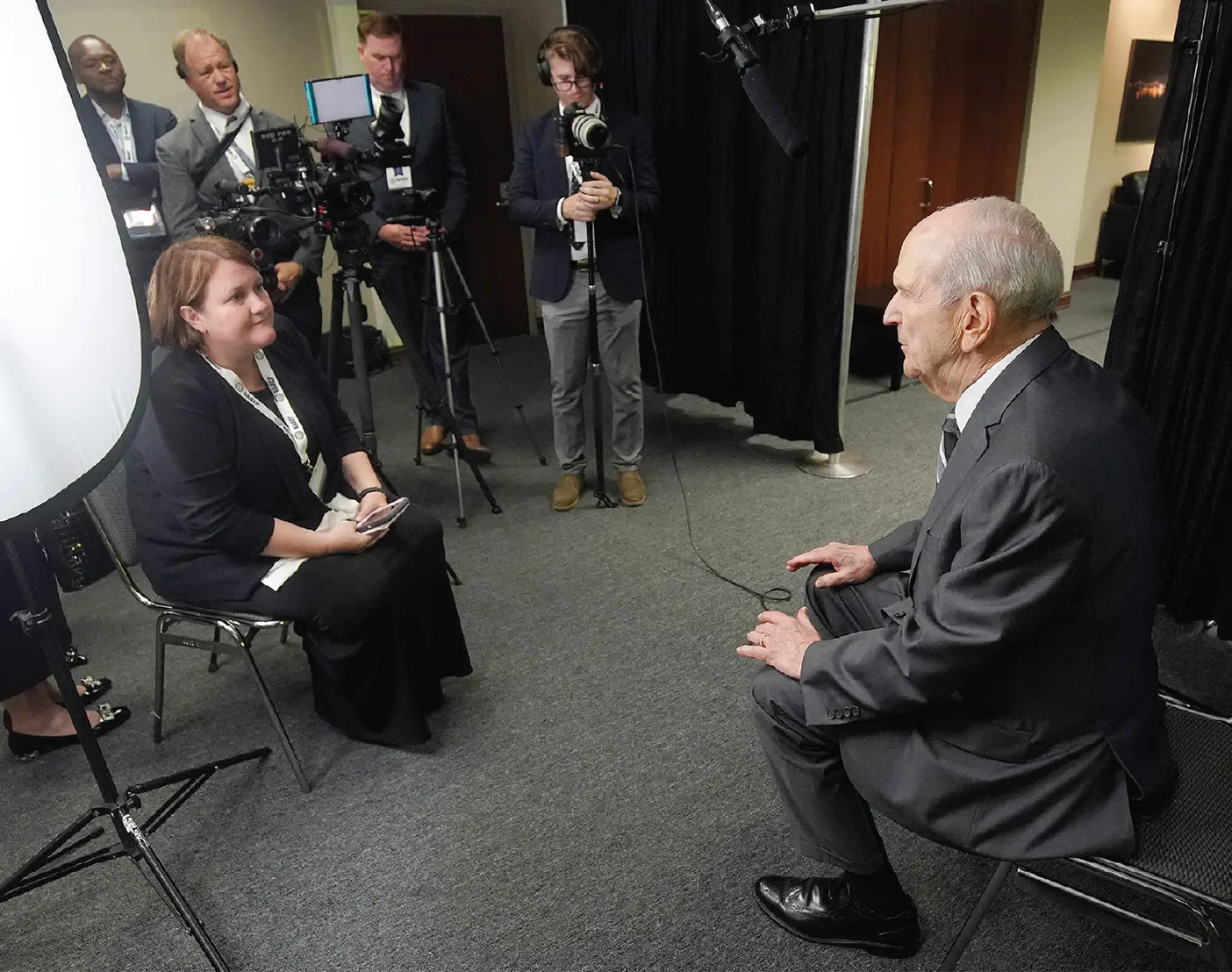
Through everything Weaver has seen in the world, she has learned it all comes back to people. “It’s about finding how the news intersects with the lives of people, . . . even when it’s about politics or about crime or about social issues.”
Weaver’s daughters have seen their mother carry this and other lessons from her work into their family life. “She is amazing at finding the one who has no one,” says Elizabeth, who can’t remember a time they had family home evening without inviting others to join. “She just sees people who need people, and she brings them into our group.”
Spreading Light
“No one is more surprised at the course of my life than me,” Weaver says. Despite her best laid plans, the path charted for her was not what she’d imagined. “The thing that is settled in my heart throughout the course of my career,” says Weaver, “is that the Lord can take you so much further than you can take yourself.”
Weaver plans to use her experiences at the Church News to carry the Deseret News into new spheres, especially in visual and audio journalism. “She—from scratch—created the [Church News] podcast that has been so popular and successful,” says Doug Wilks, who anticipates Sarah will be “charting a course” into that space for the Deseret News.
Sheri Dew has learned from decades of leadership experience that “we seem to get the best results when both men’s and women’s voices are at the table. With Doug Wilks as executive editor and Sarah Weaver as editor, we have a superb leadership team to take the Deseret News forward.”
Weaver is proud to be a part of the Deseret News and its commitment to spreading light and truth. “Truth is a form of light,” she says. “If we can, in our reporting, find truth, it can be a light in this darkness and confusion.”
When Weaver shared the news about her new position with her family, she hoped it would be meaningful for her daughters. “Our whole lives,” Kathryn says, “we’ve been raised to be strong women, and that’s what both our parents have tried to teach us.”
“I hope that if there was anything that my girls learned,” says Weaver, “it was that you can do a lot if you prioritize The Church of Jesus Christ of Latter-day Saints.”
Sarah’s decision to trust the direction of her life to the Lord has not gone unnoticed by her family. “I cannot think about my mother’s career without thinking about the gospel of Jesus Christ,” Kathryn says. “I’ve watched her give everything that she has to God and then seen Him turn that into something great.”
Feedback Send comments on this article to magazine@byu.edu.


